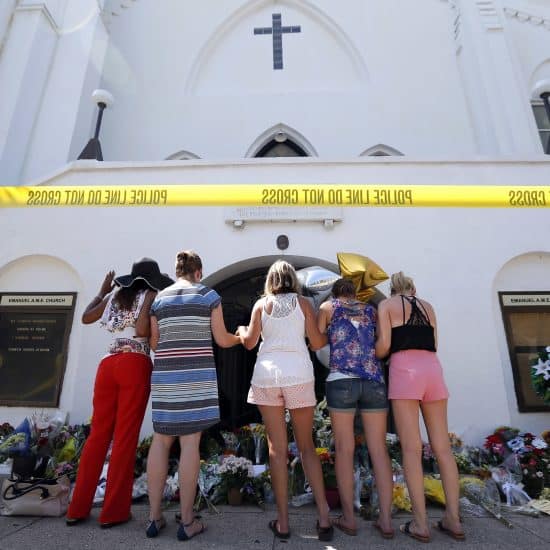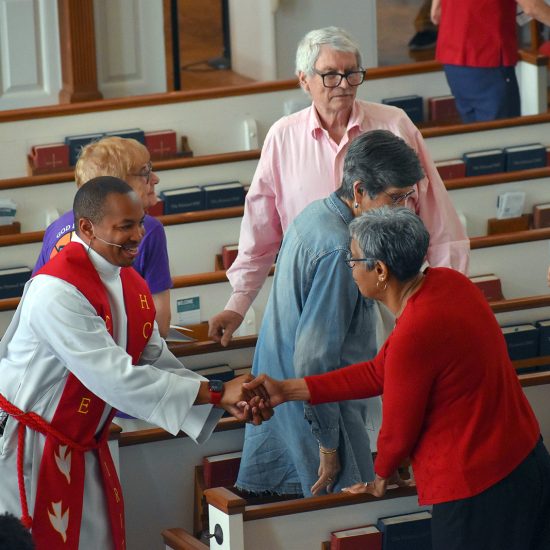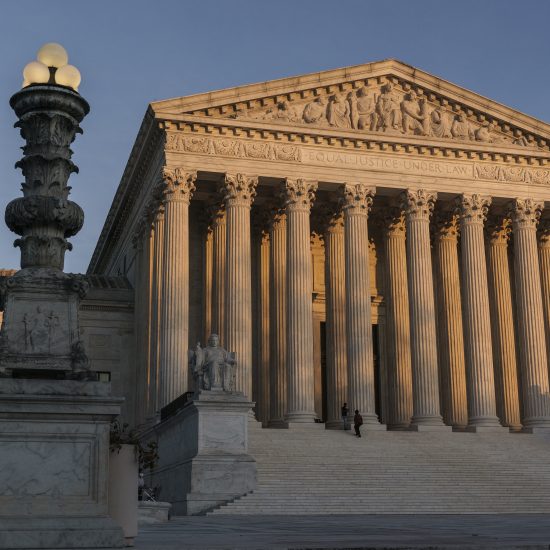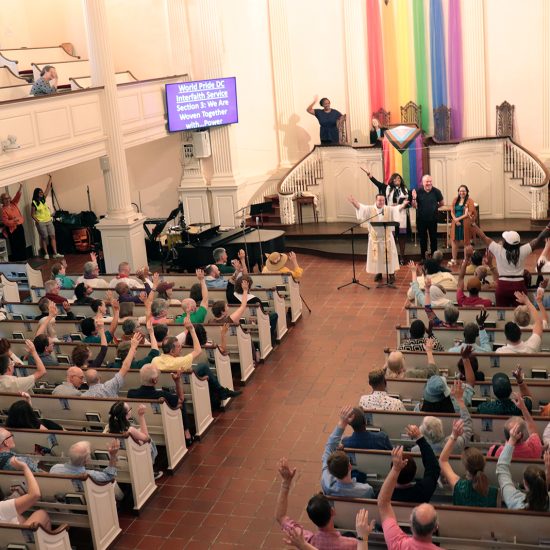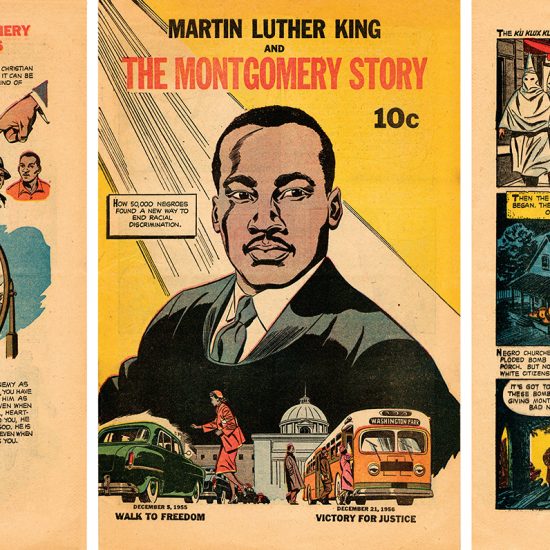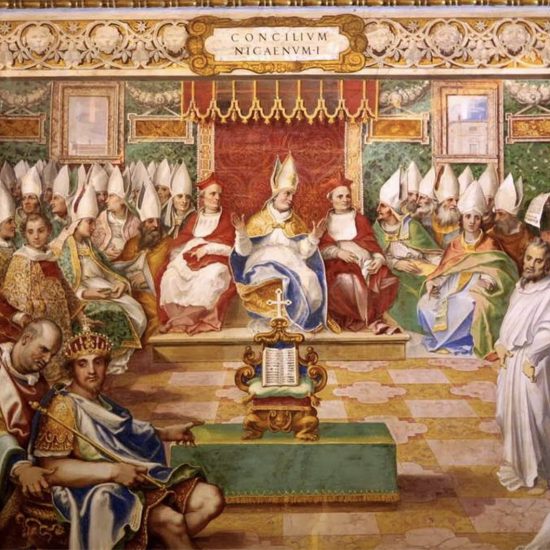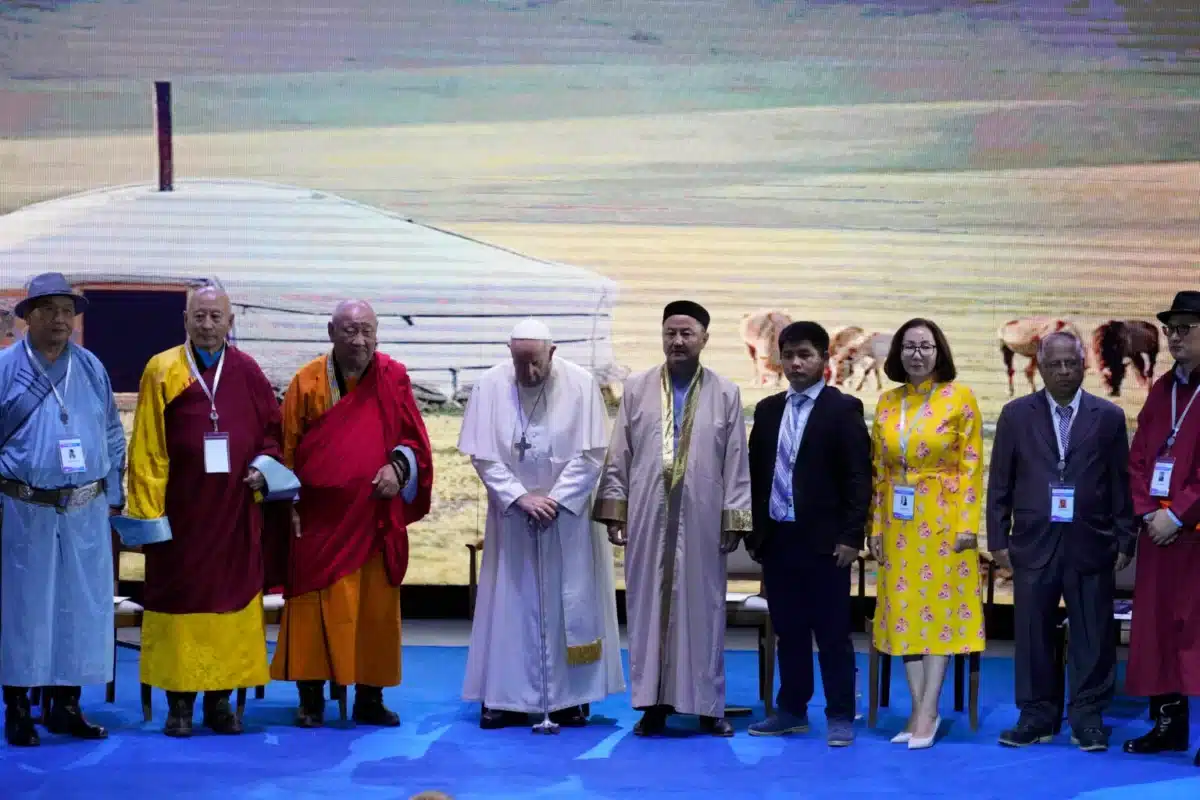
ULAANBAATAR, Mongolia (RNS) — Representatives from 11 different religions gathered with Pope Francis in a yurt-shaped theatre overlooking Mongolia’s capital of Ulaanbaatar on Sunday (Sept. 3) to promote a message of peace, tolerance, and harmony.
The small room of the Hun Theatre, shaped like a traditional Mongolian ger, was filled with the colors of the orange and yellow robes of Buddhist monks and the purple and red hats of Catholic bishops and cardinals, hailing from Hong Kong, Thailand and Korea. Representatives from Hinduism, Islam, and the Jewish community in Mongolia were in attendance, as well as clergy from the local evangelical, Adventist, and Latter-day Saints traditions.
Leaders of the local Shamanic and Baha’i religions were also present along with representatives of Shintoism from Japan and the Orthodox Church in Russia.
The meeting was organized to promote a message of religious tolerance and coexistence, as well as showcasing Mongolia’s religious diversity and acceptance. Pope Francis is the first pontiff to visit the central Asian country nestled between Russia and China.
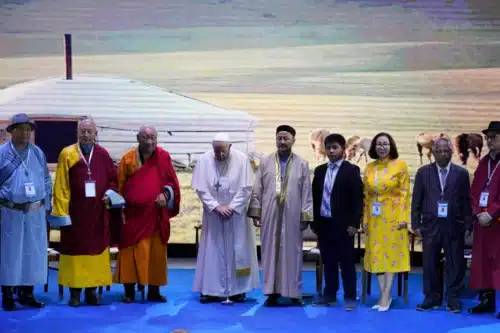
Religious leaders with Pope Francis, fourth from left, pose for a family photo at the end of a meeting at the Hun Theatre in the Sky Resort compound some 15 kilometers south of the Mongolian capital Ulaanbaatar, Sunday, Sept. 3, 2023. Pope Francis has praised Mongolia’s tradition of religious freedom dating to the times of founder Genghis Khan during the first-ever papal visit to the Asian nation. (AP Photo/Andrew Medichini)
Religions were banned and persecuted under the communist regime in Mongolia, but faith leaders were invited to return in 1992 once democracy was established in the country. The head of the Mongolian Buddhists, Khamba Nomun Khan Gabju Choijamts Demberel, acknowledged the country’s painful past in his speech, but voiced hope for the future.
That hope is represented in the recognition of the 10th reincarnation of Jebtsundamba Khutuktu, an important figure in Buddhism, the abbot said. In March, the Dalai Lama recognized in passing that the 8-year-old Mongolian boy born in the United States, Aguidai, as the reincarnation of the great Tibetan Buddhist leader in Mongolia.
Aguidai “is taking both the religious and contemporary studies,” said the head of the Mongolian Buddhists. “This is an extraordinary fortune for us.”
As participants at the event praised Mongolia’s religious diversity and acceptance, in the neighboring country of China the Communist Party has again cracked down on religious freedom, requiring religious organizations to promote the government.
The Chinese Communist Party claims to be the only one with authority to recognize a high lama. Unlike his predecessors, Pope Francis has so far never met with the Dalai Lama to avoid angering China. The Holy See and Beijing have recently renewed a provisionary deal on the appointment of bishops, but China has often failed to keep to the terms of the agreement.
All the religious representatives gathered on Sunday praised the religious tolerance present in Mongolia since it became a democracy in the 1990s. In his speech, Pope Francis urged religions to come together for the common good, quoting Buddha and Gandhi.
“Brothers and sisters, the social significance of our religious traditions can be gauged by the extent to which we are capable of living in harmony with other pilgrims on this earth and can foster that harmony in the places where we live,” Pope Francis said.
While harmony can be equated to beauty, “narrowness, unilateral imposition, fundamentalism and ideological constraint destroy fraternity, fuel tensions and compromise peace,” he added.
The pope joined the other religious leaders in listing the many challenges faced by humanity today, including “injustices, conflicts, persecutions, environmental disasters and great disregard for human life” — but he praised the ability of religions to foster unity and peace, when they are capable of setting aside sectarianism, oppression, and violence.
Francis has made interreligious dialogue a key issue of his pontificate, fostering relations with Muslims, Jews, and other Christian denominations. A signature of these efforts has been his focus on what can be done together, especially charitable works, rather than debate over dogmatic questions.
“Brothers and sisters, our coming together here today is a sign that hope is possible. In a world rent by conflict and discord, this may seem utopian, yet the greatest undertakings are hidden and almost imperceptible at the outset,” the pope said, closing his speech.
“Let us make this conviction flourish, so that our common efforts to promote dialogue and the building of a better world will not be in vain. Let us cultivate hope,” he added.
In the afternoon, the pope said Mass to 2,500 faithful at the Steppe Arena, which is usually reserved for hockey games. The crowd greeted him warmly, offering babies for the pope to bless. In his homily, Francis encouraged the small Catholic community of Mongolia, which does not exceed 1,500 people.
Among those in attendance there were also groups of Chinese Catholics who clandestinely chose to visit Mongolia for the papal visit. No pope has ever visited China before, and shortly before the papal visit the Chinese government prohibited local bishops from traveling to Mongolia to see the pope.
Despite these tensions, the pope sent a positive message to Chinese authorities and Catholics after the Mass. While holding the hands of the emeritus bishop of Hong Kong, Cardinal John Tong, and the current bishop, Stephen Chow, he took the opportunity to send “a warm greeting to Chinese people.”
“I wish the best to all the people, and to go forward, always progress,” he said. “And to the Chinese Catholics, I ask to be good Christians and good citizens to everyone.”

